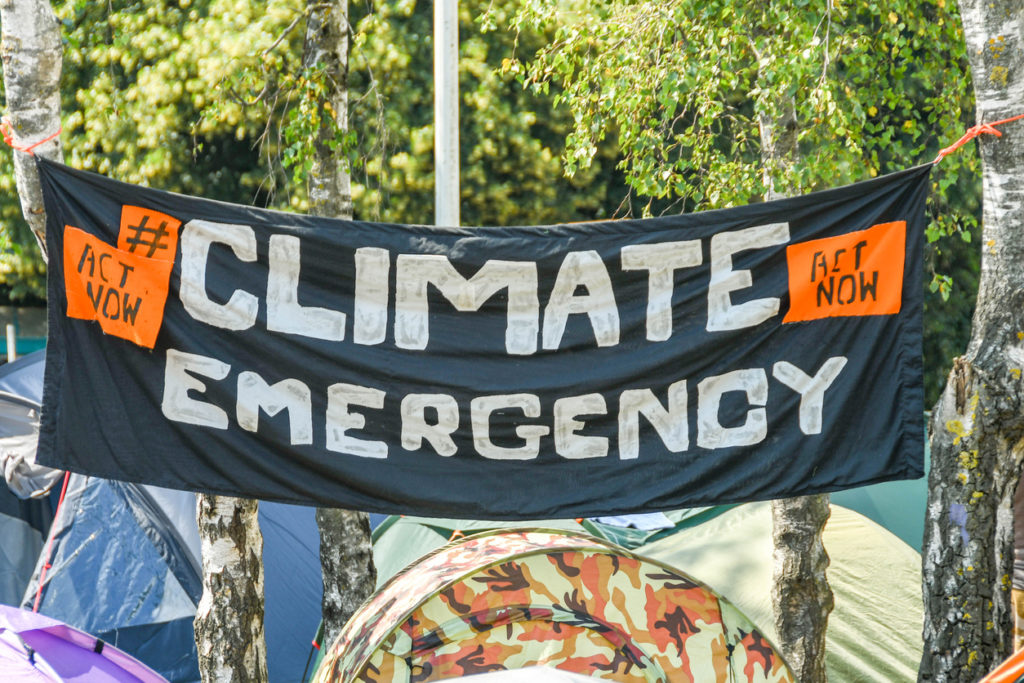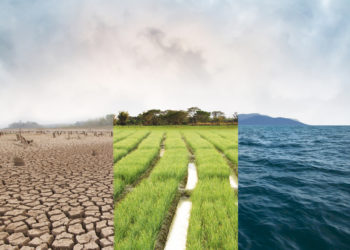In recent decades, scholarly publishers have been coming forward to meet their social responsibilities in different domains. The steady increase in Open Access (OA) journals, for example, is making newly created academic knowledge freely available to all. High article processing charges (APCs) required to publish in reputed journals is a challenge for authors from low- and middle-income countries (LMICs). But, by offering APC waivers and discounts to Research4Life-listed countries, many large publishers are showing their commitment to making journal publishing accessible to the Global South. Further, over the last 19 years, about 29,000 journals have joined the Research4Life initiative, which has improved the access to global research of 10,000 institutions of developing countries.
In March last year, major academic publishers joined hands to make covid-related research freely accessible and useable to fight the ongoing pandemic. A few months later, we saw scholarly publishing entities speaking out and reaffirming their stand against all forms of racism and social discrimination. Formation of the Coalition for Diversity and Inclusion in Scholarly Communications (C4DISC), appointment of Diversity, Equity, and Inclusion (DEI) committees by publishers, introduction of name-change policies after publication, and support from donors toward improving equity in academic publishing also showcase the industry’s contribution to social causes.
In addition to societal challenges like inequity in multiple dimensions, the world is alarmingly facing climate change, recently dubbed as global “climate emergency” and “climate crisis”.

When the first academic journals Le Journal des Sçavans and Philosophical Transactions were published in 1665, the world was a much cooler place. In fact, it was passing through a 400-year long “Little Ice Age” (1450−1850). 355 years on, 2014−2020 are the seven warmest years of the past 141 years! The reason is simple — over the last couple of centuries, we have emitted large amounts of greenhouse gases, like carbon dioxide and methane, as our industrialization progressed. The average concentration of carbon dioxide in the air we breathe used to be 278 ppm (parts per million) during 1750−1800 (pre-industrial era). In the next 200 years, wide use of fossil fuels increased carbon dioxide concentration by 25%. But, it took us just another 35 years to reach the 50% mark, with about 417 ppm carbon dioxide in the air.
The impact of these changes is grave. Increased frequency and intensity of Atlantic hurricanes and cyclones in the Bay of Bengal, floods in Asia and Europe, forest fires in Australia and the United States, melting glaciers in the Alps and the Andes, and shrinking polar ice-sheets with rising seas are devastating our lives, assets, and livelihoods.
After realizing these man-made global changes, attempts have been made to revert this situation since the early 1990s under the United Nations Framework Convention on Climate Change (UNFCCC). However, it took until 2015 for almost all countries to agree during a global climate conference in Paris to keep the global temperature rise below 2 °C — if possible, below 1.5 °C compare with the pre-industrial era — by reducing greenhouse gas emissions and embracing renewable energy options, such as wind, solar, and water. Just to note, in 2017, the world crossed the threshold of 1 °C increase in average temperature.
Our current knowledge on human-induced climate change, predicted future scenarios, and our plan to address the crisis are essentially based upon peer-reviewed research on climate change published by scholarly publishers. So, it is important that the academic publishing industry plays its due role in tackling climate change.
In simple terms, the publishing industry can reduce carbon or greenhouse gas emissions from all steps of publishing a journal or a book. If we can calculate how much carbon, for example, a journal produces to publish an issue or a volume, we can work on that baseline and make necessary changes to make the production system carbon-neutral. First, we need to know the sources of carbon emissions in the academic publishing process. This means looking carefully at commercial and non-commercial academic publishers, but also publishers’ subsidiaries (like foundations), indexing agencies, scholarly publishing societies, networks and coalitions, consulting firms, and not-for-profit organizations working in the publishing ecosystem.
Below, I list down some examples of activities/elements responsible for energy consumption and/or carbon emission by publishing entities:
Publishers’ offices
- Offices’ heating, cooling, lighting, and other energy consuming facilities used to create a comfortable working environment.
- Computers, printers, servers, and other electronic devices used to process manuscripts or to make internal and external communication by the offices.
- Recyclable and non-recyclable waste produced by the offices and the waste disposal system.
Websites, manuscript processing portals, and outreach
- Publishers’ websites and manuscript processing portals produce a significant amount of carbon dioxide annually as people browse and transfer data. Website-related carbon emission largely depends on site design and internet data usage.
- In-person meetings, training sessions, and events consume energy to varied extents, which is quite different from using online meeting/webinar platforms and social media.
- Production and distribution of printed promotional materials contribute to carbon emissions as well.
Manuscript processing and publication
- Even a couple of decades back, the academic publishing industry was heavily dependent on paper — starting from hardcopies of manuscripts received by a publisher’s office from the authors and ending with printing of thousands of hardcopies of journals, reprints, and books.
- The whole scholarly production system is increasingly becoming paperless — from manuscript submission to publication. Although many journals still have both printed and online versions, many are slowly becoming online only.
- Similarly, the energy consumption by academic printers is apparently reducing. Nevertheless, the shift toward a paperless-publishing system prompts us to look into the energy consumption by online manuscript processing, editing, designing, e-publishing, and e-archiving systems, as noted above.
Transport sector
- Transportation of copies of journals and books and of printing raw materials used contribute to carbon emission from land, sea and air routes. Editors, reviewers, and authors used to use postal services to communicate, which is almost obsolete now, and increasingly, so is the carbon emission from those postal services.
- Since almost all steps of publication are online now, transport is no longer as big a source of carbon emission from academic publishing. Nevertheless, carbon emission from the transport used by professionals engaged in the publishing industry depends on their use of public and personal transport, distance covered, fuel used, and technology used for energy efficiency.
In the light of the above items, we understand that although the academic publishing industry has grown enormously over the last couple of decades, conventional carbon emissions apparently have not grown proportionately due to revolutions in internet access and in technologies to process and publish journals and books online. Energy consumption by information and communication technologies in the publishing industry, however, has not been estimated or even considered as an area for intervention. Nevertheless, the scholarly publishing community could join in global climate actions by working in three broad areas.
As the first step, publishing entities can announce their ‘Climate Action Statement’ and ‘Climate Action Policy’. The first will publicly make clear their organizational commitment to climate action. The second, on the other hand, will act as a guiding instrument to operationalize and realize that commitment. Some publishers do have environmental policies, but it is now important to focus on climate action by considering the issues touched upon below.
As a second step, a crucial aspect of climate action is switching to renewable energy sources to run publishers’ offices and the online and offline processes of publishing. Publishers should look into the energy consumption of their online platforms and redesign them to significantly improve energy efficiency. They should also practice low-carbon or carbon-neutral options for online and in-person outreach activities to promote journals, books, and other marketing efforts. As state and national policies increasingly adopt renewable, sustainable energy alternatives, the publishing industry needs to publicly support and join those efforts.
Third, as a part of influencing the practices of stakeholders, publishers should encourage staff, editors, authors, clients (like academic libraries), and vendors and suppliers to adopt low-carbon or carbon-neutral practices. This could be done through arranging orientation programs, revising human resource policies, and updating vendor enlistment and procurement policies and partnership policies. Publishing entities, such as global publishing networks, should reinforce positive climate actions through their channels as good practices for further replication and mainstreaming.
Publishers can also encourage their authors, one of the most enlightened groups of people, to highlight in their articles, as applicable, how the research is supporting climate action. This is in line with publishers advising authors to follow ethical best practices by declaring conflicts of interest, obtaining prior informed consents from information providers, or disclosing funding information, for example. Publishers have also started declaring how they support sustainable development, more specifically achieving the United Nations Sustainable Development Goals (SDGs). Similarly, they can update their publishing policies and state that they will not publish any research funded by fossil fuel companies.
Being an industry dealing with knowledge and evidence, scholarly publishing cannot shy away from its responsibility to address climate crisis. The industry should be proud of its rapid shift to paperless, online systems as a means of going green. Now it is time to look into its energy efficiency, as well as energy sources by taking a stand in favor of renewable options and opposing fossil fuels.
Discussion
8 Thoughts on "Climate Responsibilities of Scholarly Publishing"
Thanks for this interesting post. As a traditionally paper-based global industry, publishing is certainly one that benefits from being mindful of natural-resource consumption and contributions to damaging activity. And I totally agree that a lot of topics of discussion recently around research publishing all relate and affect one another – Accessibility, equity, sustainability, diversity all play interlinked roles in supporting progress in a cohesive way.
A lot of the issues that you raise are going to be covered in the June conference of the European Association of Science Editors (EASE) – during which we are focussing on the role of editors (as well as publishers) in meeting the SDG goals and promoting sustainability in research as well as in publishing.
Take a look at the programme here – https://ease.org.uk/ease-events/15th-ease-conference-2021/
Couldn’t agree more. Thank you Haseeb for raising this critical issue!
Thank you for highlighting the EASE Conference to be held in late June. The programme looks very exciting with wide range of sessions on sustainability and SDGs. I look forward to participating in the Conference and in one of the debates as a debater!
Members of the publishing industry know there is a climate crisis because Haseeb and other experts have told them so. And, like a good expert, Haseeb is now advising them on ameliorative steps they might take. It is to the creativity and ingenuity of such experts that we look for further solutions. Yet Haseeb does not mention steps the industry could take to make the task of experts easier. Experts have many demands on their time – giving testimony in court proceedings, reviewing manuscripts, etc., and, most important of all, maintaining their expertise by reading the products of the publishing industry. Is the industry making it easy for them to access and read those products? Are full TOCs made freely available, or does the industry tease them by requiring further clicking around to access full TOCs? Does the industry help them by making the checking of citations in papers they are freely reviewing for the industry easy to access? One can go on and on … .
Great thought provoking insight Donald, but I’ll play the devil’s advocate here by shifting the responsibility back to the environmentally conscious ‘experts’. They should probably approach the professionals to ask the ‘how’ because these ‘hows’ are industry specific especially considering that a big chunk of them are essentially climate/environment/sustainability enthusiast (not employed/paid)
Thank you for this article, and your support of the Sustainable Development Goals. At the UN we encourage publishers to join the SDG Publishers Compact which includes commitments to many of the areas you outline in your article. Broadly there are two areas publishers can contribute to the SDGs in a significant and concrete way: publishing content on and communicating about the SDGs, and adopting sustainable business practices. Please join us! https://www.un.org/sustainabledevelopment/sdg-publishers-compact/
This is an explosive article, Haseeb. I never imagined that all the processes leading to scholarly publication would have a significant impact on climate change. But be that as it may, I believe that certain steps are being taken to mitigate the impact to promote sustainability.
Thank you once again for sharing your thoughts!
A masterpiece, Haseeb bhai, opening the eyes to meet the SDG goals for all the publishing houses across the borders, only then the climate responsibility could be addressed by this industry, hence ACT NOW is the perfect slogan.



